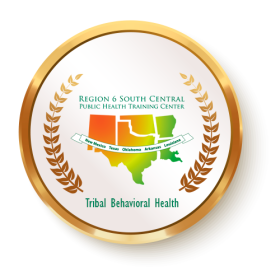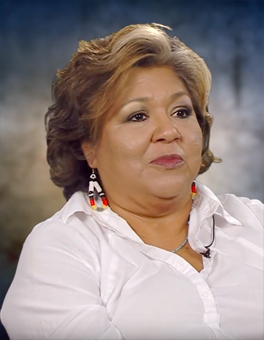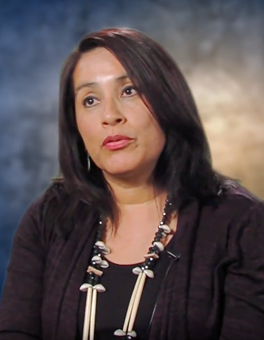
Tribal Behavioral Health 104: Culture is Prevention!
Course Description:
Tribal Behavioral Health 104: Culture is Prevention! is the last in a four-course learning series.
This course will inform Tribes, Tribal Serving Organizations and public health professionals about the use of culturally appropriate programs and practices for substance abuse prevention. Examples of success stories from the Cheyenne and Arapaho Tribes’ Tradition Not Addiction Prevention Program will be used to provide valuable examples.
Target Audience
Academic Faculty/Staff, Federal Government Employees, State Government Employees, Local Government Employees, Non-Government Employees and Students.
Learning Objectives
- Define culturally appropriate programs and practices (Tribal Best Practices)
- Explain why lack of reliable data for AI/AN is a major barrier to public health interventions
- Recognize the importance of high quality data to identify AI/AN health and behavioral health disparities
- Describe the positive response AI/AN have to culturally appropriate messages
- Identify the real-world strategies, programs and practices that have proven successful in a traditional American Indian Tribe in Central Oklahoma
- Recognize the need smaller tribes have for epidemiological expertise to help obtain funding and implement relevant programs
- Identify the existing capacity that exists in all Native Tribes for using Culture as Prevention
Instructors:

Clara Bushyhead (Preventionist)
Ms. Clara Bushyhead, a member of the Cheyenne-Arapaho Tribes of Oklahoma was until recently the Prevention Specialist for the Strategic Prevention Framework (SPF) Partnership for Success Cooperative Agreement, a sub-recipient of a SAMHSA grant awarded to the Southern Plains Tribal Health Board. She has 20+ years working for the Cheyenne-Arapaho Tribes of Oklahoma.
Through the use of the Strategic Prevention Framework, Ms. Bushyhead began collecting Native specific data in Northwest Oklahoma, both for alcohol and nonmedical use of prescription drugs as it relates to tribal youth.
Through the data collection process, a new youth movement called Tradition Not Addiction was conceived, created and established. Because of the success of this program the Cheyenne and Arapaho Tribe have provided full administrative and financial support to enlarge the scope of the program.
Special Acknowledgement: Clara Bushyhead is the main author, although she is no longer on the grant, we want to acknowledge the phenomenal work that she contributed to the field of prevention, her community, and most importantly to the youth of the Cheyenne & Arapaho Tribes.

Melanie Johnson M.Ed. (Project Manager)
Melanie Johnson, a member of the Sac and Fox Tribe of Oklahoma, is the Project Manager for the Strategic Prevention Framework Partnership for Success Grant funded by the Substance Abuse and Mental Health Services Administration (SAMHSA), within The Southern Plains Tribal Health Board, Oklahoma Tribal Epidemiology Center, focusing on substance abuse prevention among Native youth.
She received a Master of Education Degree, with a concentration in American Indian Education, from The University of Oklahoma. Currently, her focus is to advocate for promising practices and strategies to reduce alcohol and substance abuse among American Indians and Alaska Natives.
She and Clara worked hand in hand to implement the Tradition Not Addiction program.

Sucharat (Gift) Tayarachakul, MPH (Epidemiologist)
Ms. Sucharat Tayarachakul is a lead Epidemiologist at the Southern Plains Tribal Health Board, Oklahoma Area Tribal Epidemiology Center focusing on substance abuse prevention among Native youth and Maternal and Child Health.
She received a Master of Public Health Degree, with a concentration in Epidemiology, from Indiana University Fairbanks School of Public Health.
Currently, her focus is providing data support (analysis and reporting) to tribal partners and overseeing the Tribal Epidemiological Outcomes Workgroup (TEOW).
Available Credit
- 1.00 Participation/CETulane Professional and Continuing Education (PaCE) awards 1.00 hour(s) of credit for completing Tribal Behavioral Health 104: Culture is Prevention!
Price
Required Hardware/software
System Settings
This course is designed to work most effectively if your computer and internet connection meet certain minimal requirements. This course can be accessed using a Windows 10 PC or a Mac with High Sierra1, Mojave, or Catalina. Pop-up blockers should be disabled when viewing the course. Internet Explorer 11 (for Windows 10), or the current version of Google Chrome, Mozilla Firefox, or Apple Safari (for Windows 10 and or Mac) is required. Many of our courses require Java and JavaScript enabled.
Links to External Websites
Links to websites outside this course will open in a new window or tab. Some browsers may minimize the course window. If this occurs, maximize the course window to return to the course.
Adobe Acrobat Reader (for desktops and laptops)
Adobe Acrobat Reader is required to access some documents in this course. If you need to download a free copy of Acrobat Reader, click here.
Internet Connection Speed
A minimum download speed of 1.5 Mbps is recommended for an optimal experience, which is commonly the speed associated with a basic DSL or a cellular/satellite connection. A faster connection, such as cable or fiber service, with further enhance your online experience. A Wi-Fi connection is generally acceptable, but it is dependent upon one of the two services mentioned above. You can check your internet connection speed at http://www.speedtest.net/.

 Facebook
Facebook Twitter
Twitter LinkedIn
LinkedIn Forward
Forward